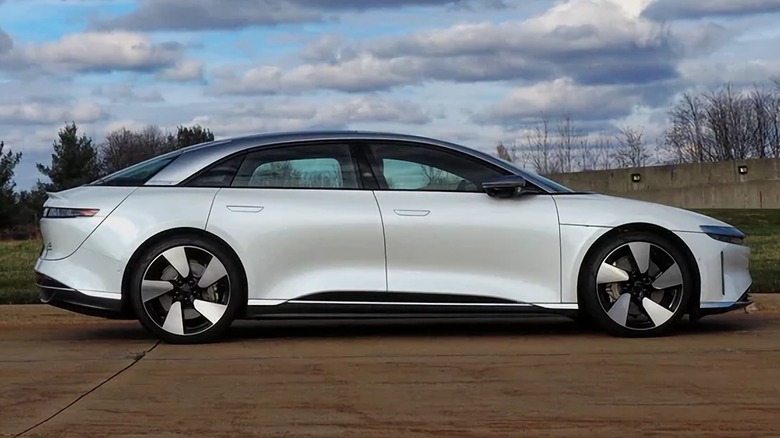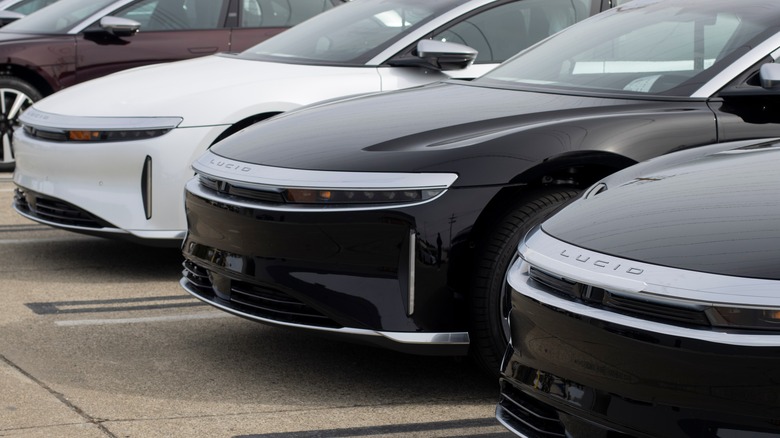EV Maker Lucid Plans Widespread Layoffs In Effort To Cut Costs
Lucid, the California-based company behind the luxury Lucid Air electric sedan, will lay off hundreds of employees to cut costs, according to Reuters. The news surfaced in the form of a letter penned by Lucid CEO Peter Rawlinson, who reportedly said that the company's workers will get details about the layoffs over most of the remaining week. The company closed out 2022 with 7,200 workers and the laying off of 1,300 people — around 18% of the overall workforce — will bring that number down to somewhere around 5,900, though how it'll shake out in the end isn't yet clear.
As with many other companies dotting the tech and auto landscapes, Lucid is reducing its headcount to similarly reduce spending, also noting in a separate document that it is picking over its numbers to make sure it isn't engaging in unnecessary "non-critical spending." Bloomberg shared additional quotes from Rawlinson's leaked email, which reportedly calls the layoffs "painful but necessary" in order to keep the company viable into the more distant future.
A regulatory filing shared additional details
Beyond the letter sent to staff, Lucid shared some details about the upcoming layoffs in a regulatory filing, the most notable of which is that it will eat $24 million to $30 million as a result of its restructuring due to expenses like severance pay for laid-off workers. Executives aren't immune from these cutoffs nor are contractors. Assuming everything goes according to plan, the entire debacle will be wrapped up by the end of the company's second quarter.
The move isn't surprising in light of Lucid's February 2023 announcement that it needs to reduce its spending. The company was hit by a sharp drop in demand for its luxury EV in recent months, and it entered the new year in a weak position amid the wider economic uncertainty many face in our largely post-pandemic days.
The news came only a few weeks after the company's biggest competitor, Tesla, announced sharp price cuts that made its already popular EVs even more attractive to consumers. The automotive market was hit particularly hard by the supply chain disruption that occurred during the height of the pandemic, leaving some new cars benched while used car prices climbed and manufacturers made hard compromises in the name of getting units out the door.

